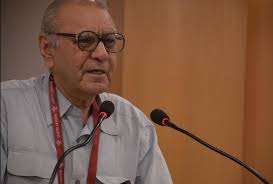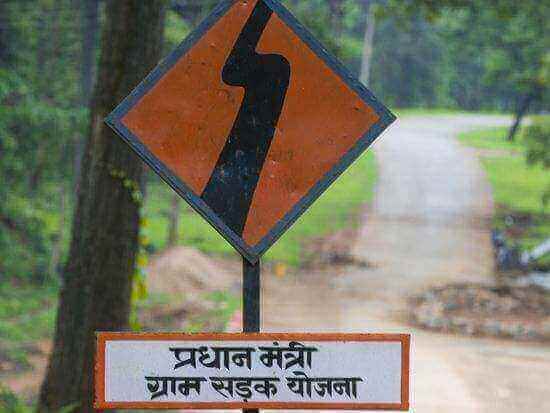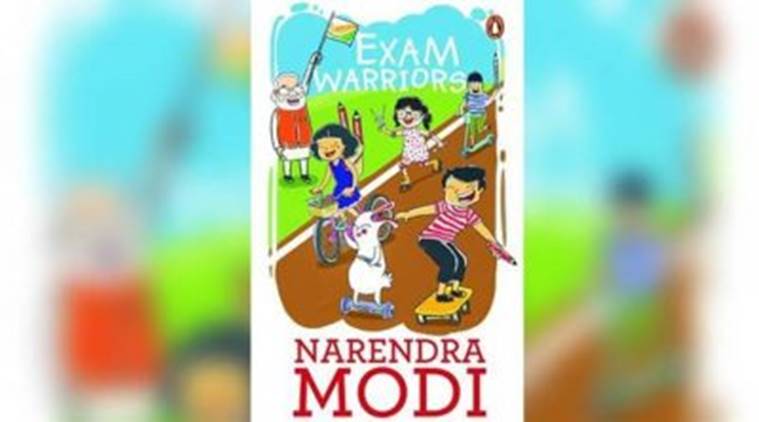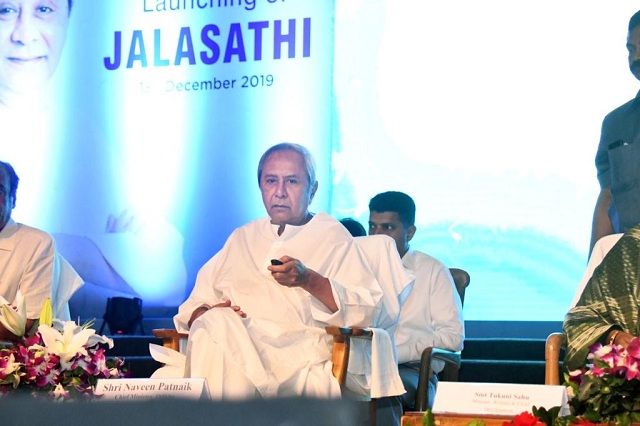Table of Contents
Daily Current Affairs for Government Exams:
Today Current Affairs: 19th December 2019 for UPSC IAS exams, State PSC exams, SSC CGL, State SSC, RRB, Railways, Banking Exam & IBPS, etc
Table of Contents:-
- Impeachment of US President
- Sahitya Akademi Awards 2019
- Tripura Gets Its First SEZ
- Balimela Reservoir
- Pradhan Mantri Gram Sadak Yojana
- TRAI deferred implementation of Zero-IUC
- Working conditions in Border Guarding Forces
- India’s retail price inflation
- Braille Edition of Exam Warriors
- India-US 2+2 Dialogue held at Washington
- GST Council Meeting in New Delhi
- Odisha, program to supply safe drinking water
- Silver Line project
- Exercise ‘Apharan’
- Important daily current affairs
1. Impeachment of US President:
Donald Trump has become the third US President in history to be impeached by the House of Representatives. The trial will now start in the Senate.
The two prior impeachments were: Andrew Johnson (1868) and Bill Clinton (1998).
Info:
- The legislature of the United States of America i.e. Congress of the United States consists of two houses: the Senate, in which each state, regardless of its size, is represented by two senators, and the House of Representatives, to which members are elected on the basis of population.
- The US Constitution states that the President can be removed for conviction of treason, bribery, or other high crimes or misdemeanor”.
- In India, the President can be removed only for ‘violation of the Constitution’ and the Constitution does not define the meaning of the phrase ‘violation of the Constitution’.

Reason for impeachment: The impeachment inquiry against Donald Trump, the incumbent president of the United States, was initiated by House Speaker Nancy Pelosi on September 24, 2019, that Trump may have abused the power of the presidency by withholding military aid as a means of pressuring newly elected president of Ukraine
What is impeachment?
- Impeachment is the process by which a legislative body levels charges against a government official.
- Impeachment does not in itself remove the official definitively from office; it is similar to an indictment in criminal law, and thus it is essentially the statement of charges against the official.
- In some countries the individual is provisionally removed, in others, they can remain in the office during the trial.
- Once an individual is impeached, they must then face the possibility of conviction on the charges by a legislative vote, which is separate from the impeachment but flows from it, and a judgment which convicts the official on the articles of impeachment entails the official’s definitive removal from office.
Steps of impeachment:
At the federal level, the impeachment process is a three-step procedure:
- First, the Congress investigates.
- Second, the House of Representatives must pass, by a simple majority of those present and voting, articles of impeachment, which constitute the formal allegation or allegations. …
- Third, the Senate tries the accused.
2. Sahitya Akademi Awards 2019:
Sahitya Akademi has announced its annual Sahitya Akademi Awards in 23 languages.
About Sahitya Academic Award:
- Sahitya Akademi award established in 1954, is a literary honor that is conferred annually by Sahitya Akademi, India’s National Academy of letters.
- Award is presented to the most outstanding books of literary merit published in any of the 23 major Indian languages recognized by the Akademi (including English).
- Sahitya Akademi award is the second-highest literary honor by the Government of India, after the Jananpith award.
About Sahitya academic award 2019:
- Seven books of poetry, four of the novel, six of short stories, three of essays and one each of non-fiction, autobiography and biography have won the Sahitya Akademi Awards 2019.
- The Awards were recommended by distinguished Jury members representing 23 Indian languages and approved by the Executive Board of the Sahitya Akademi, India’s National Academy of Letters.
- The Award in the form of an engraved copper-plaque, and a cash prize of Rs. 1,00,000/- will be presented to the authors of these books at a special function to be held in February 2020.
Hindi and English award winner:

In Hindi, Nand Kishore has been awarded for his Poetry ‘Chheelate Hue Apne Ko’ and in English Shashi Tharoor has been awarded for his Non-Fiction ‘An Era of Darkness’.

3. Tripura Gets Its First SEZ:(SABROOM SEZ):
The Ministry of Commerce and Industry has notified the setting up of Tripura’s first-ever Special Economic Zone (SEZ).
It will be developed by Tripura Industrial Development Corporation (TIDC) Ltd. for the industries based on rubber, textile and apparel, bamboo and agri-food processing.
- The SEZ is being set-up at Paschim Jalefa, Sabroom, South Tripura District.
- It will be a Sector Specific SEZ for Agro-Based Food Processing. Rubber-based industries, textile and Apparel Industries, bamboo and Agri-food Processing Industries will be set-up in the SEZ.
- The developer of the SEZ will be Tripura Industrial Development Corporation (TIDC) Ltd.
- After it is set up, 100 percent Income Tax exemption will be provided on export income for SEZ units under Section 10AA of the Income Tax Act for the first 5 years.
- Setting up the SEZ in Sabroom will open up new avenues to attract private investment considering the proximity of the Chittagong Port and construction of the bridge across Feni River in South Tripura which is underway.
About the Special economic zone:
With a view to overcoming the shortcomings experienced on account of the multiplicity of controls and clearances; the absence of world-class infrastructure, and with a view to attracting larger foreign investments in India, the Special Economic Zones (SEZs) Act was passed in 2005.
SEZs work as an engine for economic growth supported by quality infrastructure complemented by an attractive fiscal package, both at the Centre and the State level, with the minimum possible regulations.
4. Balimela Reservoir:
There has been demand for providing patta or documented land rights to the tribal inhabitants of ‘Swabhiman Anchal’, the erstwhile cut-off area of the Balimela reservoir in Odisha.

Balimela Reservoir:
- The Balimela Reservoir is on the river Sileru which is situated in the Maikangiri District of Odisha State.
- The Sileru (also known as the Machkund River) rises in the Eastern Ghats in Andhra Pradesh state and flows northward into Jalaput Reservoir on the border with Odisha state.
- The Sileru empties into the Sabari River in Chhattisgarh. Sabari river is a tributary of Godavari.
5. Pradhan Mantri Gram Sadak Yojana (PMGSY) phaseIII:

The Union Minister of Rural Development launched Phase III of Pradhan Mantri Gram Sadak Yojana (PMGSY) to further enhance the connectivity of villages with hospitals, schools and agricultural markets.
About:
- Under the PMGSY-III Scheme, it is proposed to consolidate 1,25,000 Km road length in the States.
- PMGSY-III involves consolidation of through routes and major rural links connecting habitations to Gramin Agricultural markets (GrAMs), higher secondary schools and hospitals.
- Implementation period: 2019-20 to 2024-25.
- It will entail an estimated cost of Rs 80,250 crore.
- The funding pattern for the PMGSY-III will be 60:40 between Centre and the States for States other than NE & Himalayan States and 90:10 for NE and the Himalayan States as applicable for Central sponsored schemes.
Important Info :
PMGSY-I was launched in 2000 with an objective to provide single all-weather road connectivity to eligible unconnected habitation of designated population size.
6. (TRAI) deferred implementation of zero-interconnect usage charge (IUC):
The Telecom Regulatory Authority of India (TRAI) deferred implementation of zero-interconnect usage charge (IUC) regime by a year, besides kick-starting a consultation on the need to fix minimum tariffs for mobile calls and data.
About:
- For wireless to wireless domestic calls, the termination charge would continue to remain as ₹0.06 per minute up to December 31, 2020.
- From January 1, 2021, onwards the termination charge for wireless to wireless domestic calls shall be zero.
- The BAK (bill and keep) or zero IUC regime was to come into effect from January 1, 2020.
- The deferment by a year will be a huge relief for Vodafone Idea and Bharti Airtel, who had pitched for postponing the implementation. However, Reliance Jio was in not in favor of deferring it.
Interconnect usage charge (IUC)?
These charges are paid by a telecom services provider whose subscriber makes a call to the service provider whose subscriber receives the call.
- Currently only calls made via wireless to wireless devices attract IUC in India.
- The Telecom Regulatory Authority of India (TRAI) has fixed the IUC rates at 6 paise per minute.
- TRAI wants to bring IUC to zero because it Is assumed all networks have moved to VoLTE, or voice over LTE (Long Term Evolution). Jio is entirely a VoLTE network, but Vodafone and Airtel continue to offer their legacy 2G and 3G networks as well.
7. Working conditions in Border Guarding Forces:
Recently, Department-Related Parliamentary Standing Committee on Home Affairs submitted its Report no. 221 on working conditions in Border Guarding Forces (Assam Rifles, Sashastra Seema Bal, Indo-Tibetan Border Police, and Border Security Force) in the Rajya Sabha.
Facts:
- There should be an end to the overuse of the Central Armed Police Force (CAPF) for rigorous internal security and election-related duties as that does not give them enough time for rest and recuperation.
- Limit the deputation of officers from the IPS and the armed forces to CAPFs at 25%
- The CAPFs cadres should be given an opportunity to become the Director-General of respective forces.
- Pay to the CAPF should be on par with the defense forces personnel as they also face similar risks and social and family isolation. They should be given an incentive in the form of Paramilitary Service Pay.
- Ministry of Home Affairs (MHA) should put in place an institutional mechanism with representatives of the MHA, various forces and experts in mental health to address the issue of suicides in the CAPFs.
8. India’s retail price inflation in November 2019 jumped to a 40-month high:
India’s retail price inflation in November 2019 jumped to a 40-month high, at a time when growth has slowed to a six-year low, prompting some economists to warn that the country could be entering into a stagflationary phase.
- Typically, inflation rises when the economy is growing fast. That’s because people are earning more and more money and are capable of paying higher prices for the same quantity of goods.
- When the economy stalls, inflation tends to dip as well – again because there is less money now chasing the same quantity of goods.
Stagflation scenario:
- Stagflation is a portmanteau of stagnant growth and rising inflation.
- Stagflation is said to happen when an economy faces stagnant growth as well as persistently high inflation.
- With stalled economic growth, unemployment tends to rise and existing incomes do not rise fast enough and yet, people have to contend with rising inflation. So people find themselves pressurized from both sides as their purchasing power is reduced.
9. Braille Edition of Exam Warriors:

Union Minister for Social Justice and Empowerment Thaawarchand Gehlot released Braille Edition of ‘Exam Warriors’, a book authored by Prime Minister Narendra Modi in New Delhi.
About Braille Edition of ‘Exam Warriors’:
The Braille edition of the book will be available in Hindi and English. It has been printed by Braille Press of ‘Rajasthan Netraheen Kalyan Sangh’ in Jaipur.
- The book contains a detailed-design of an animated picture as well as various yoga asanas which will let students imagine pictorial graphics with ease.
- With this Braille edition, millions of visually-impaired students of country who face mental stress will be able to derive motivation and mental strength during examinations.
- The book will also boost the confidence level of these students and help them get success in various competitive exams.
10. India-US 2+2 Dialogue held at Washington:

India and the United States held security dialogue in Washington. This was their second 2+2 dialogue.
Highlights:
The countries signed an industrial security agreement allowing defense technology transfer. The US secretary Mike Pompeo and defense secretary Mark Esper hosted the meeting for Indian external affairs minister Shri Jai Shankar and Defence Minister Rajnath Singh.
11. Finance Minister Nirmala Sitaraman chaired the GST Council Meeting in New Delhi:

On December 18, 2019, Finance Minister Nirmala Sitaraman chaired the GST Council Meeting in New Delhi. The meeting was held to address the backdrop of falling collections for the current fiscal.
Highlights:
- For the first time, the council has used the voting process and has voted to tax on lotteries under the highest slab of 28%.
- The Council did not tamper with the rates. It also rationalized the rates of woven and non-woven bags to 18%.
- It has also waived the late fees for those who have filed their taxes after July 1, 2017.
The changes are to be effective from January 1, 2020.
- The Finance Ministry has set a monthly target of Rs 1.1 lakh crore collection of GST for the remaining four months.
- The ministry has planned field visits and drives to increase tax collection. At the beginning of the financial year, GoI had set a target of Rs 13.35 lakh crore of direct tax collection. So far, it has reached 45% of the set target.
12. Jalasathi: Odisha CM Naveen Patnaik launches a program to supply safe drinking water:

Odisha Chief Minister Naveen Patnaik launched the ‘Jalasathi’ program on December 18, 2019, with the aim to ensure the supply of safe drinking water to all households in the state.
About:
- Under the ‘Jalasathi’ program, over 5,000 women will be engaged in Odisha to supply safe drinking water.
- The program will be initially implemented in eight wards of Bhubaneswar Municipal Corporation under the 5T initiative of the Housing and Urban Development.
- It will be implemented in the remaining wards of the city as well as other urban areas of the state in the next phases. The initiative is expected to benefit around 70 lakh people in urban areas.
- The Jalasathis will serve as the links between consumers and the Public Health Engineering Organisation (PHEO) or WATCO.
13. Silver Line project:
The Ministry of Railways has granted in-principle approval for the ‘Silver Line’ project, a proposal of the Kerala government.
About the Project:
- It involves laying of semi high-speed trains between the two corners of the state of Kerala.
- It is 532- km long. The corridor will be built away from the existing line between Thiruvananthapuram and Thrissur.
- It aims to connect major districts and towns with semi high-speed trains that will run on their own tracks.
- The Kerala Rail Development Corporation (K-Rail), a joint venture between the Ministry of Railways and the
- Kerala government to execute projects on a cost-sharing basis, will be the nodal agency.
14. Exercise ‘Apharan’:
- It is a large scale Anti Hijacking Exercise conducted recently by the Indian Navy in collaboration with the Indian Coast Guard.
- The latest edition was held in Kerala.
Aim: To streamline the response mechanism/ preparedness to thwart any attempt to hijack a merchant’s vessel or attempt forced entry of a commandeered merchant vessel into the Indian harbor.
Other important current affairs:
1. TANSEN SAMAROH: In Madhya Pradesh, popular classical music festival ‘Tansen Samaroh’ began in Gwalior. Tansen Samaroh is the oldest classical music festival in India. It is the 95th year of the festival. The five-day festival is celebrated every year in the month of December in Behat village of Gwalior district, Madhya Pradesh.
2. EVMs Not Under RTI Act: the Delhi High Court quashed an order of the Central Information Commission (CIC) which had held that Electronic Voting Machines (EVMs) fall within the definition of ‘information’ under the Right To Information (RTI) Act. The CIC’s order had come on a plea that sought access to an EVM maintained by the Election Commission (EC) under the RTI Act.
3. India-Bangladesh Joint Water Commission: The India-Bangladesh Joint Rivers Commission’s (JRC) technical-level talks have been canceled recently. The JRC was expected to draft the framework agreement of the interim sharing of the Feni river’s waters with Tripura.
4. Asian Houbara Bustard: The government of Pakistan has issued special permits to the Emir of Qatar and nine other members of the royal family to hunt the Houbara Bustard, an internationally protected bird species. Houbara Bustards are large, terrestrial birds that belong to several species, including some of the largest flying birds.
5. Ministry of Railways organized the third edition of the Conference on Wagon Development for New Commodities on 19 December 2019.
Aim: The objective of the conference is to provide innovative solutions for transportation challenges in the steel, automobile, cement, food-grain, and other special commodities segments
6. The 11th Regional Quality Conclave (RQC) was held on 20th December 2019 at, Rudrapur, District Udham Singh Nagar, Uttarakhand. The Conclave will be inaugurated by Madan Kaushik, Minister of Urban Development Government of Uttarakhand.
The theme of the Rudrapur RQC is “Advance Manufacturing with Quality, Innovation & Technology Interventions.” The Conclave aims to create awareness about the significance of quality culture in businesses.
7. Union Minister for Health & Family Welfare Dr. Harsh Vardhan inaugurated the new Central Government Health Scheme (CGHS) Wellness Centre at Vikaspuri, New Delhi.
CGHS services: CGHS services have been planned to be extended to 100 cities. Currently, the scheme is operational across 72 Cities through 329 Allopathic Wellness Centres and 86 AYUSH Centres.
8. The World Health Organization (WHO) has now approved a biosimilar medicine that is derived from living sources instead of the chemicals. The aim is to make breast cancer treatment affordable to women globally.
9. An upgraded version of India’s indigenously developed Pinaka guided rocket system was successfully test-fired from Odisha coast on 19 December 2019. The rocket aims to boost the Army’s artillery power. It was fired from the Proof and Experimental Establishment firing test range at Chandipur. An upgraded version of Pinaka.
10. Edelweiss Asset Management Company has issued the first Bharat Bond ETF, the corporate bond exchange-traded fund in the country. The bond issue will close on 20 December 2019. Bharat Bond ETF.
11. Rajasthan Chief Minister Ashok Gehlot inaugurated the first Janta clinic at Valmiki Basti in Malviya Nagar, Jaipur on 18 December 2019. The chief minister had announced Janta clinics during the state budget. Janta clinic will provide free primary health care to poor people living in city slums.
12. The US National Science Foundation (NSF) reported that India has become the world’s third-largest publisher of science and engineering articles. It has published over 1.35 lakh scientific papers. China topped the report as the world’s largest publisher.
13. The Indian Coast Guard (ICG) organized the 18th National Maritime Search and Rescue Board (NMSARB) meeting in New Delhi. The annual meeting was held to discuss policy issues, formulate guidelines & procedures as well as assess the efficacy of the National Search and Rescue Plan (NSRP).
14. Infosys announced the launch of three blockchain-powered distributed applications for government services, supply chain management, and insurance domains. These applications are equipped with predictive return on investment (ROI) analytics for business investments that can be tailored to meet numerous industry-specific needs.




